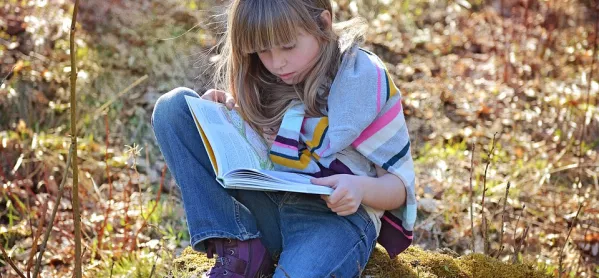- Home
- Six reasons why every primary school needs to embrace non-fiction
Six reasons why every primary school needs to embrace non-fiction
We often encourage our students to read more fiction, but non-fiction can be just as important, argues one teacher
17th May 2017, 12:01pm

Everyone has their favourite children’s book. And it is almost always a work of fiction. While children do read a lot of non-fiction, it is not venerated in the same way as the novels and picturebooks beloved to us all.
Unfortunately, this can make non-fiction seem somehow less important and some can even question its place in the primary classroom.
We need to fight this denigration of the genre: non-fiction books are essential tools in the primary classroom. Here is why:
- Comprehending non-fiction is a life skill
Children can learn a lot from reading stories - they are indeed very fine ways to introduce new concepts to young minds - but man cannot live on fiction alone: if you learn to live solely from storybooks, you might have a pretty skewed view of life.
We need non-fiction too. Newspapers, magazines, textbooks, emails, adverts, leaflets, catalogues, timetables, cookbooks - these are all everyday examples of non-fiction. To be able to read them is a necessary life skill. Non-fiction texts are a primary source of information when it comes to finding out what we need to know in order to live our lives.
- Non-fiction underpins all other learning
In schools we rely on non-fiction texts to provide us with the content of, say, a geography lesson. It may be the teacher who reads and then communicates the knowledge, or it may be the child themselves who has to read a text to gain knowledge.
Children wouldn’t learn much in school if it wasn’t for someone’s ability to read non-fiction texts. And if a child can and does read non-fiction texts, the world is their oyster - they can learn anything and everything they want to learn.
- Non-fiction aids understanding of fiction
All those wonderful children’s books students love? Pair them with non-fiction texts and they become a whole lot richer. A lack of background knowledge is a key reason for poor comprehension skills.
Competent readers make meaning from a text not only by knowing what the words mean, but by bringing what they know of the world to the text. It’s worth noting that children are more likely to engage with a non-fiction text related to a novel that they are emotionally invested in.
- Reading non-fiction is linked to academic success
Research shows that development of the aforementioned background knowledge (it isn’t just knowledge necessary to understanding novels, but to understanding life itself) enables pupils to achieve academically.
Over the past few decades several studies have drawn a strong correlation between the possession of background knowledge (which can be gained from non-fiction texts) and achievement, including success at college and university level and beyond.
- There are some brilliant non-fiction books out there
This is perhaps a less robust reason; no-one would suggest you jump off a cliff just because cliffs are available for jumping off. But take a walk through the children’s non-fiction section of your local bookshop, preferably with a child, and you’ll both be drooling over what’s on offer.
Beautifully illustrated tomes on the journeys of great explorers, the wonders of desert regions and the intricacies of the human bodies are waiting to be devoured by children, who will treasure the knowledge within. It would be a travesty for books like these to go unread in the classrooms of our primary schools.
- Some children like non-fiction more
We all know those children who are like walking, talking encyclopedias - they devour non-fiction and store all the little facts away, often proudly reciting them to anyone who will listen. They’re often the ones who read very few novels but make a beeline for the Guinness Book of Records.
Of course, some children rarely read anything - with a school-provided diet often richer in fiction, could it be that they’re an undiscovered avid non-fiction reader? If we are serious about helping children to find books that they love, we need to balance out the text types we expose them to. Given that there is probably a great variety of non-fiction text types out there, we need to ensure that is reflected in the curriculum.
Aidan Severs is an assistant vice-principal at a primary school in the North of England. He blogs at ThatBoyCanTeach and tweets @thatboycanteach
Keep reading for just £1 per month
You've reached your limit of free articles this month. Subscribe for £1 per month for three months and get:
- Unlimited access to all Tes magazine content
- Exclusive subscriber-only stories
- Award-winning email newsletters
Recent
Most read
Most shared



